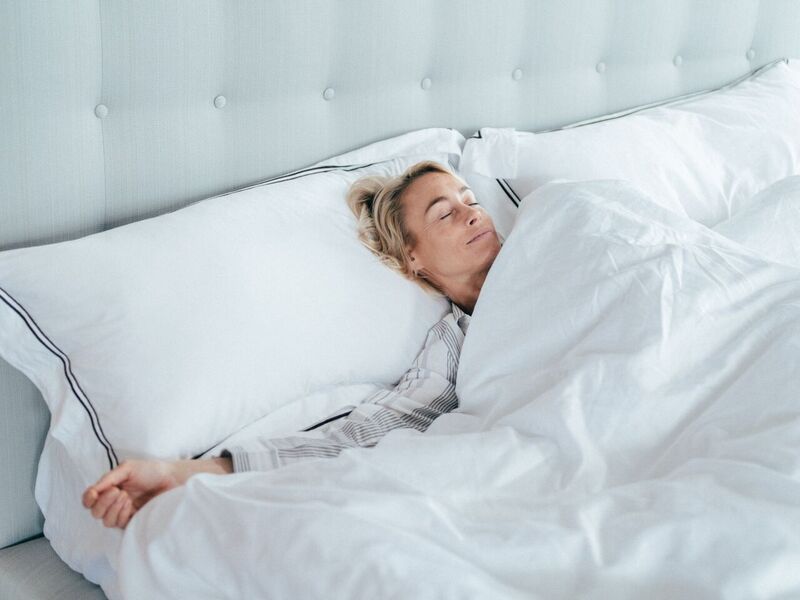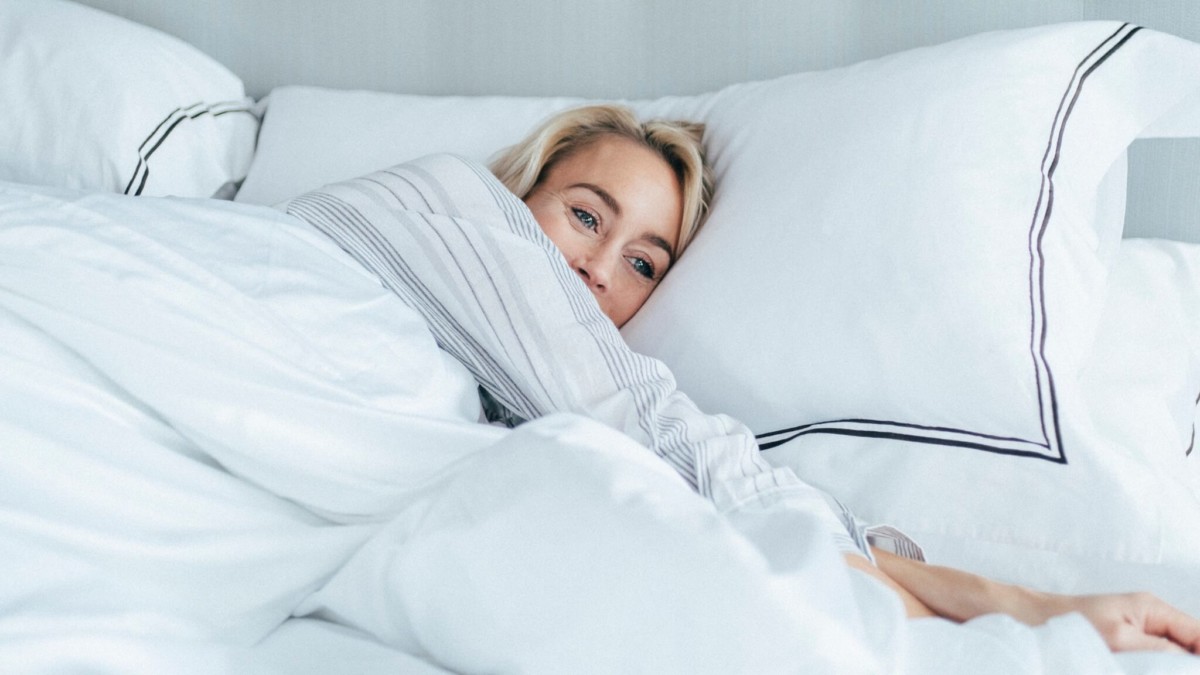Nutrition and sleep with Dr Mike Molloy
Dr Mike Molloy reveals how the foods we eat can impact our sleep and why our sleep patterns affect our dietary choices.

We all know that a diet consisting of different nutritional foods is good for our health and well-being. However, research continues to highlight the important relationship between sleep, nutrition and diet. To uncover the science, we spoke to the nutritional coach, Dr Mike Molloy to understand how these three elements are entwined. With a PhD in Molecular & Cellular Biology, Dr Molloy reveals how nutrition can affect our sleep and why our sleep patterns influence our dietary choices. From diet myths to weight loss, discover how the connection between sleep, nutrition and diet can help us wake up refreshed in the morning.

Dr Mike Molloy talks to Savoir about sleep, nutrition and diet.
How can sleep impact our dietary choices?
There is a connection between lack of sleep and the dysregulation of hunger. A number of studies have revealed that when we don’t sleep enough, or achieve quality sleep, we start to feel hungrier and eat substantially more food. We also eat more hyper-palatable, calorie-rich food, which really causes us to pack on the pounds. In fact, a study from the University of Colorado showed that limiting sleep to 5 hours per night for just one week led to a 2lb weight gain.
Sleep can also have an impact when it comes to dieting and losing weight. Most of us are purely interested in fat loss, not just weight loss. Sleep plays a key role in fat loss. If we’re in a calorie deficit and sleeping close to 8 hours per night, then we will lose mostly body fat. However, if we sleep less than 6 hours per night we will lose mostly muscle mass. It defeats the point of losing weight if we’re going to keep all the body fat. What’s worse is that with less muscle mass, our metabolism will decrease and we’ll be more likely to hit a plateau in our fat-loss journey.

A healthy nutritional breakfast is a great way to start the day. Image Credit: Nassima Rothacker for Chantelle Nicholson
What is the biggest sleep and nutrition myth?
We shouldn’t eat late at night. There really is no evidence to suggest that a moderate amount of food intake will strongly disrupt sleep. If someone is very active, then some food before bed might even help them sleep more soundly through the night. I suggest avoiding the below before bed:
1. Highly processed sugar as this can cause the core body temperature to rise, which decreases sleep quality.
2. Eating a huge meal that would cause us to feel very uncomfortable. That also applies to any time of day too.
The other issue with a big meal before bed comes down to acid reflux and heartburn. After eating and climbing into bed, the body is laying at a horizontal angle. This can result in stomach acid entering the oesophagus and causing acid reflux, which can be a really uncomfortable experience.

Discover how our sleep patterns can influence our dietary choices.
Can you explain how alcohol and caffeine can impact our sleep?
Alcohol has a number of negative impacts on the various stages of sleep, but the most noticeable are:
1. Delayed sleep onset, meaning it takes longer to fall asleep
2. Decreased REM sleep, which is the phase of sleep responsible for dreaming and for memory “consolidation.”
There’s also a phenomenon that’s been observed that when the body finishes processing the alcohol out of the body, it tends to wake us up, which is of course, counterproductive to a good night’s sleep.
As for caffeine, which is a stimulant, the maximum impact of caffeine occurs approximately 30-60 minutes after drinking it. Though timing can vary widely among individuals. Once in the brain, caffeine blocks something called adenosine receptors. Adenosine is a sleep-promoting chemical that builds up throughout the day. The more adenosine we have, the sleepier we feel. But caffeine blocks that signal. On top of that, caffeine may interfere with our circadian rhythm. Caffeine appears to temporarily disrupt this rhythm which can also prevent us from getting a restful night’s sleep.

A nutritional meal can help your overall health and result in improved sleep. Image Credit Nassima Rothacker for Chantelle Nicholson
Why do we feel hungrier after a poor night’s sleep?
This is due to our hormones. Two of the major hormones that regulate hunger are leptin and ghrelin. Leptin suppresses hunger while ghrelin stimulates it. Several studies have shown that a lack of sleep reduces the production of leptin and increases the production of ghrelin, and as a result, we feel substantially hungrier.
Are there any diets that can help improve our sleep?
Perhaps it’s no surprise but the nutritional approaches that generate overall health tend to result in the best night’s sleep. I suggest focusing 85% of your diet on foods that are unprocessed. Meaning they come from the earth in the same state that you eat them. The other 15% can be things that are fun and make life a little bit more enjoyable overall, such as chocolate, wine, bread, etc.
Additionally, there is some evidence that a plant-based diet can increase levels of the amino acid tryptophan which is a precursor for the sleep hormone melatonin. However, I would stress that this effect is due to the large focus on eating plants, and less on the exclusion of meat-based products.

Achieving a restorative night’s sleep through diet and nutrition.
Having worked with some of the world’s finest athletes and Olympians, what advice do you give them about sleep?
Like most things, we need to set ourselves up for success with a good night’s sleep. I suggest sleeping in the pitch black by getting black-out curtains. Putting pieces of tape over any little flashing lights. Covering the alarm clock so it’s not staring us in the face all night long.
Finally, routine is our friend. If we can get to bed at the same time each day and wake up at about the same time each day, we’ll find that it becomes easier to get a great sleep even when life gets a little crazy in other ways.
Dr Mike Molloy is the founder of M2 Performance Nutrition. Mike has been a nutrition coach for over a decade and is passionate about helping people heal – by repairing their physical body and their emotional relationship with food.
To discover the importance of quality sleep and the sleep myths to avoid, read our recent articles with Savoir’s sleep expert, Dr Rebecca Robbins.
